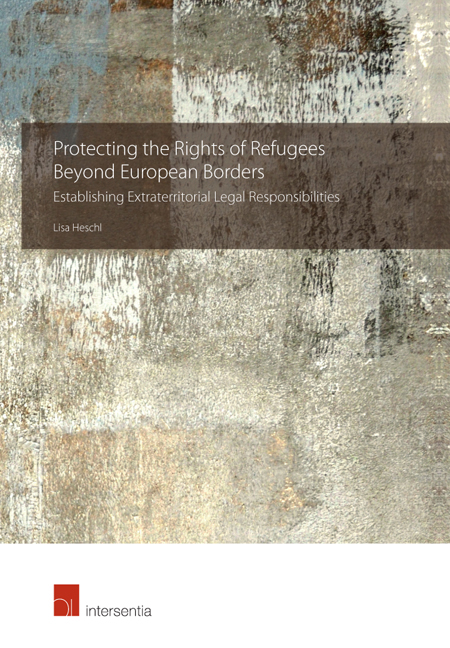 Protecting the Rights of Refugees Beyond European Borders
Protecting the Rights of Refugees Beyond European Borders Book contents
- Frontmatter
- Dedication
- Preface
- Acknowledgements
- Contents
- Table of Cases
- Table of Treaties, Instruments and Legislation
- List of Abbreviations
- Chapter 1 Introduction
- Chapter 2 The External Dimension of the European Migration and Asylum Policy
- Chapter 3 Extraterritorial Immigration Control Measures by EU Member States
- Chapter 4 Extraterritorial Immigration Control Measures by Frontex
- Chapter 5 Summary of Findings and Conclusions
- Bibliography
- Index
- About the Author
Chapter 5 - Summary of Findings and Conclusions
Published online by Cambridge University Press: 12 October 2018
- Frontmatter
- Dedication
- Preface
- Acknowledgements
- Contents
- Table of Cases
- Table of Treaties, Instruments and Legislation
- List of Abbreviations
- Chapter 1 Introduction
- Chapter 2 The External Dimension of the European Migration and Asylum Policy
- Chapter 3 Extraterritorial Immigration Control Measures by EU Member States
- Chapter 4 Extraterritorial Immigration Control Measures by Frontex
- Chapter 5 Summary of Findings and Conclusions
- Bibliography
- Index
- About the Author
Summary
POINT OF DEPARTURE
The extraterritorialisation of immigration control measures bears witness to the security concerns that shaped migration and asylum policies over the course of the last two decades. Their introduction stressed the rhetoric of the ‘migration and refugee crisis’ that portrays migrants and refugees as a security threat. This rhetoric represents the angle for the analysis of extraterritorial immigration control measures and the establishment of legal responsibilities for violations of protection-related norms occurring in their context. This book has argued that the exclusion logic underpinning the development of the common European migration and asylum policy cumulated in the multi-layered system of pre-border control mechanisms, composed of legislative and operational measures aimed at deterring people from arriving at the territorial borders of the EU. Instead of awaiting the arrival of people, these strategies aim to divert migratory flows well before the actual territorial borders. As diverse as the names describing the trend of pre-border migration control, have been the forms of its implementation. Accordingly, typologies of different extraterritorialisation policies and measures include the imposition of visa requirements or carrier sanctions, but also operative measures such as the positioning of liaison officers in third states or border control operations taking place beyond a state's territory. All these measures have in common that a person may encounter a border when still in his or her country of origin or a country of transit. The study at hand focused on operational measures where MS of the EU and the specialised agency Frontex, engaged in immigration control measures that take place in the territories of third states on the basis of bilateral agreements or working arrangements concluded.
Territorial borders have traditionally been considered as the natural delineation of the executive powers of states and the border guard as an expression of state authority. However, extraterritorial immigration control measures changed the maxim that state executive powers related to migration control have to be exercised by its own nationals attached to the state's national territory. Instead, border control measures aimed at protecting the external borders of the EU may take place beyond European territorial borders or might even be implemented by agents of third states acting on behalf of and/or with the support of MS or Frontex.
- Type
- Chapter
- Information
- Protecting the Rights of Refugees Beyond European BordersEstablishing Extraterritorial Legal Responsibilities, pp. 223 - 232Publisher: IntersentiaPrint publication year: 2018


